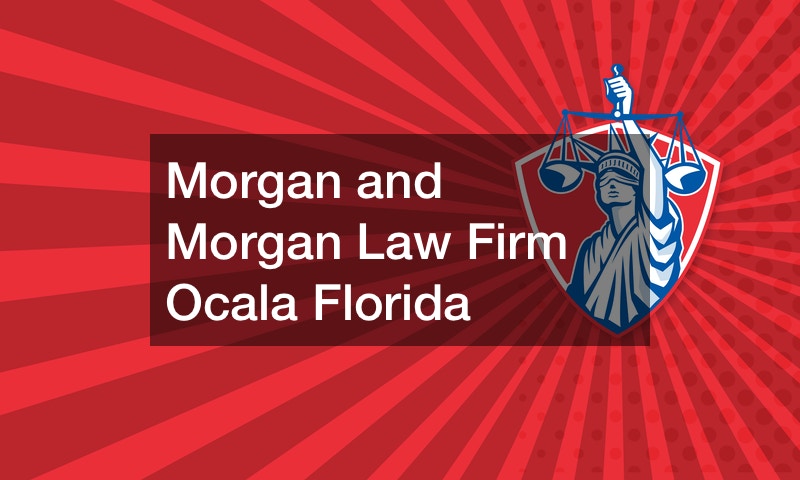
Got some common legal questions? Buckle up because we’re about to embark on a journey through the labyrinth of personal injury, family, and business law. Whether you’ve found yourself in a fender-bender fiasco, embroiled in divorce issues, or grappling with the complexities of business matters, navigating the legal landscape can feel like tiptoeing through a minefield. But fret not! This article is your trusty guide, illuminating the shadows and unraveling the knots of common legal questions that plague many. So, prepare to embark on a quest for legal enlightenment. We’re here to demystify the legal world, one question at a time.
What are the common grounds for divorce?

As one of the most common legal questions, we must first understand divorce. Divorce, the legal dissolution of a marriage, is a path many tread when the once smooth road of matrimony becomes riddled with potholes. It’s a tough decision, but sometimes it’s best for all parties involved. The idea of starting anew can be daunting, yet the prospect of finding peace and happiness can outweigh the fear of the unknown.
Common grounds for divorce vary depending on jurisdiction, but some universal reasons include the following:
-
- Adultery: When one spouse engages in extramarital affairs, it can irreparably damage trust and intimacy within the marriage.
-
- Irreconcilable differences: Over time, couples may grow apart, unable to bridge the gap between their values, goals, or personalities.
-
- Abandonment: If one spouse leaves the marital home and refuses to return for a significant period without justification, it can be grounds for divorce.
-
- Domestic violence: The presence of physical, emotional, or psychological abuse can create an unsafe environment, warranting legal intervention.
-
- Substance abuse: Addiction can strain relationships, leading to neglect, financial instability, and overall dysfunction within the marriage.
Navigating the legal complexities of divorce requires the expertise of a seasoned family lawyer. They guide clients through the labyrinth of legal proceedings, ensuring your rights are protected and your voice is heard. From filing paperwork to representing you in court, a skilled divorce lawyer can provide invaluable support during this challenging time.
Do I really need a will and trust?
Contemplating our mortality isn’t always a pleasant pastime, yet it’s an essential aspect of responsible adulting. Here’s a deeper dive into why having a will and trust is more than just a legal formality:
-
- Asset distribution: Your will is your voice from beyond the grave, stipulating how you want your hard-earned assets to be divided among your loved ones. Without it, state laws play judge and jury over your estate. And they don’t always align with your wishes.
-
- Guardianship for minors: If you’re a parent, nothing is more important than ensuring your children are cared for in the event of your untimely demise. With a will, you can designate a guardian to step into your shoes and provide love and support to your little ones when you no longer can.
-
- Avoiding probate: Imagine your family grieving your loss, and then they’re hit with the bureaucratic nightmare known as probate. It’s a long, arduous process where your will gets scrutinized, assets get tied up, and legal fees pile up. Placing assets in a trust can bypass this mess, ensuring a smoother wealth transition to your beneficiaries.
-
- Privacy: Nobody wants their dirty laundry aired out in public. Wills are public documents, meaning anyone with an internet connection can see your affairs. But trusts? They’re like the secret vault of estate planning, keeping your financial matters discreet and your family affairs private.
Estate planning is complex; one wrong move could unravel your legacy. That’s where the expertise of an estate planning lawyer comes in handy. These legal wizards specialize in crafting ironclad wills and trusts tailored to your unique circumstances. And let’s not forget about trust lawyers. They are the masters of trusts, wielding their knowledge and expertise to create trusts that shield your assets from taxes, creditors, and even the prying eyes of nosy neighbors. Whether you’re pondering the necessity of a will or trust or grappling with common legal questions regarding your assets, remember that a little expert guidance can go a long way toward securing your family’s future.
What should I do if I get accused of a crime?

Finding yourself on the wrong side of the law can be utterly terrifying. The mere thought of facing criminal charges can send shivers down your spine and keep you awake at night. It’s not just the fear of punishment that weighs heavy; it’s the uncertainty of the outcome, the stigma of being labeled a criminal, and the potential repercussions that can haunt you long after the legal battle. But there is a light at the end of the tunnel. Here’s a roadmap to help navigate the rocky terrain of criminal accusations:
-
- Stay calm: Panicking won’t help anyone, least of all yourself. Take a deep breath, collect your thoughts, and focus on crafting a strategy to protect your rights.
-
- Invoke your right to remain silent: You’ve seen it in the movies, and it’s just as crucial in real life. Anything you say can and will be used against you in court. So stay silent until you’ve got an attorney by your side.
-
- Contact a criminal defense attorney: This is non-negotiable. A skilled attorney is your best defense against the formidable forces of the criminal justice system. They’ll assess your case, explore your legal options, and fight tooth and nail to protect your rights.
-
- Gather evidence: If you’ve got proof that supports your innocence, gather it well because your life may depend on it. This evidence could include witness statements, surveillance footage, or alibis that corroborate your version of events.
When facing criminal charges, many have common legal questions like, ‘Should I plead guilty or not guilty?’ or ‘What are my rights during a police interrogation?’ These are precisely the kinds of questions your attorney can answer with precision and expertise because they are always on a case-to-case basis. Remember, you’re innocent until proven guilty and have the right to a fair trial. Enlist the help of a seasoned attorney who will fight relentlessly to safeguard your freedom and ensure justice is served.
What is the maximum BAC permitted when driving?
Blood Alcohol Concentration (BAC) is a measure of the amount of alcohol in your bloodstream. It’s a critical factor when determining impairment while operating a vehicle. The higher your BAC, the more impaired you are likely to be, increasing the risk of accidents on the road. Understanding BAC and its implications is vital for responsible driving.
In most jurisdictions, driving under the influence (DUI) or driving while intoxicated (DWI) laws establish the maximum BAC permitted while driving. The legal limit varies from place to place but typically ranges from 0.05% to 0.08%. Exceeding this limit can result in severe consequences, including fines, license suspension, and even jail time, depending on the circumstances and the offender’s history.
If you face DUI charges, seeking professional help from a DUI attorney is essential. These legal experts specialize in defending individuals accused of driving under the influence, providing invaluable guidance and representation throughout the legal process. From challenging evidence to negotiating plea deals, a skilled attorney can significantly impact the outcome of your case. Additionally, being proactive and responsible can minimize the likelihood of encountering DUI issues and keep yourself and others safe. Avoiding a DUI issue altogether is the best course of action.
How do disability claims work?

Navigating the complexities of disability claims can feel like embarking on a journey through uncharted territory. As one of the common legal questions people ask, understanding the legalities of disability claims is essential. Here’s a breakdown of how disability claims typically work:
-
- Initial application: The process begins with filling out an application for disability benefits from the Social Security Administration (SSA). This application requires detailed information about your medical condition, work history, and other relevant factors. It’s crucial to provide thorough and accurate documentation to support your claim.
-
- Medical evaluation: Once your application is submitted, the SSA will review your medical records and may request additional evaluations or examinations to assess your disability. This may involve consulting with medical professionals or undergoing specialized tests to determine the extent of your impairment.
-
- Decision: After reviewing all the evidence, the SSA will decide on your disability claim. If approved, you will begin receiving benefits. If denied, you can appeal the decision and request a reconsideration, hearing, and further appeals if necessary.
Seeking assistance from disability lawyers can greatly improve your chances of a successful claim. These legal professionals specialize in disability law and can provide valuable guidance and representation throughout the claims process. From helping you gather evidence to preparing you for hearings and appeals, a skilled disability lawyer can be invaluable in your quest for benefits. You can easily ask your lawyer common legal questions like, ‘What qualifies as a disability?’ or ‘How long does the claims process take?’ They are well-equipped to answer these questions and provide personalized advice based on your circumstances.
How can a lawyer help in cases involving truck accidents?
In truck accident cases, a truck accident attorney can be a lifeline for victims seeking justice and compensation. These legal professionals specialize in handling the complexities of truck accident cases and can provide invaluable assistance in several ways. Firstly, your attorney will thoroughly investigate the circumstances surrounding the accident. This may involve gathering evidence such as witness statements, accident reports, and data from the truck’s black box to determine liability.
Secondly, they will negotiate with insurance companies on behalf of the victim to ensure they receive fair compensation for their injuries, medical expenses, lost wages, and other damages. Insurance companies often try to minimize payouts or shift blame onto the victim. A skilled attorney can advocate for their client’s rights and secure the compensation they deserve.
Lastly, they can represent the victim in court if the case goes to trial. They will present compelling arguments and evidence to the judge and jury to hold the negligent parties accountable and obtain maximum compensation for their client. Common legal questions in truck accident cases may include inquiries about liability, insurance coverage, and the legal process, all of which a knowledgeable truck accident attorney can address with expertise and compassion.
What is wrongful death?
Wrongful death occurs when a person dies due to the negligence, recklessness, or intentional act of another party. These tragic incidents can occur in various situations, including car accidents, medical malpractice, workplace accidents, etc. When a loved one’s life is cut short due to someone else’s actions, the surviving family members may have grounds to file a wrongful death lawsuit seeking compensation for their losses.
A wrongful death lawyer represents the interests of surviving family members in these cases. They understand the nuances of wrongful death law and can guide grieving families through the legal process with compassion and skill. Common legal questions in wrongful death cases often revolve around liability, damages, and the statute of limitations. An expert lawyer can provide answers and support to help families navigate the complexities of these challenging situations and pursue justice for their loved ones.
What are the common myths about workers’ compensation?

Workers’ compensation is a vital safety net for employees injured on the job, but there are several common myths surrounding this system. One prevalent misconception is that filing a workers’ compensation claim will lead to retaliation from the employer. In reality, employers are legally prohibited from retaliating against employees for seeking workers’ compensation benefits. If you face retaliation or discrimination after filing a claim, a workers compensation attorney can help protect your rights and hold your employer accountable.
Another common myth is that pre-existing conditions disqualify you from receiving workers’ compensation benefits. While pre-existing conditions can complicate claims, they do not necessarily disqualify you from receiving benefits. You may still be entitled to compensation if a work-related injury exacerbates a pre-existing condition or contributes to its progression. Your attorney can address any common legal questions in these kinds of cases.
Navigating the legal landscape can be daunting, especially when facing personal injury, family matters, business law, etc. Seeking guidance from specialized attorneys, whether for divorce, estate planning, criminal defense, or workers’ compensation, can provide invaluable support in addressing common legal questions and achieving favorable outcomes. From understanding legal rights to advocating for justice, these legal experts offer expertise and compassion to guide individuals through the complexities of the legal system, ensuring their rights are protected and their needs are addressed.




